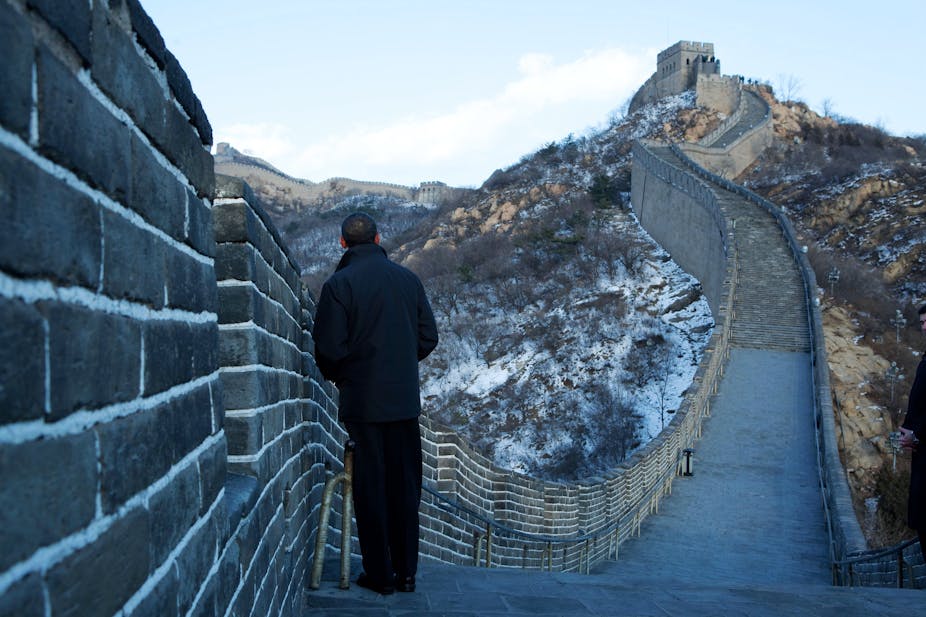The US shutdown and the fractious struggles in Congress are symptomatic of a broader trend in American politics. In the aftermath of the global financial crisis, a new political landscape has emerged, marked by the breakdown of consensus and an ever more hostile bargaining culture in Washington.
This raises new challenges for America’s role in the world, as political disagreements are jeopardising its capacity to balance domestic and international responsibilities.
The international dominance of the dollar, the world’s premier trade and reserve currency, and the special status of US Treasury bonds as the linchpin of global capital markets, gives the US a unique set of privileges and responsibilities within the global economy.
It means the US has the policy space to run an enormous trade deficit and huge volumes of public debt. But it also brings responsibilities. Foremost among these is the obligation to underpin global financial markets by continuing to issue government debt to foreigners, while honouring obligations on interest payments of existing debt.
Shaky commitment
The shutdown raises the spectre of a US default on its existing debts if a resolution cannot be reached by 17 October. America’s commitment to these responsibilities, which have defined its unrivalled power within the global economy, now looks shakier than ever before.
Despite signs of jittery investors in global financial markets, Wall Street analysts remain confident the US will pull back from the brink before defaulting. But repeated episodes of disagreement and paralysis over the debt ceiling, which have marked US politics since 2011, suggest their confidence may well be misplaced.
The spat threatens to break down the long-standing bipartisan commitment to maintain America’s central role within global financial markets. These markets act as a transmission belt, spreading changing assessments of the risk and price of dollar assets throughout the global economy. Domestic struggles over the future of America’s economic policy could therefore engulf the entire global economy in crisis.
If a default does occur, the international consequences would be grave. The value of the dollar would plummet, and as investors shifted into alternative assets, for example the euro, the yen and the renminbi, the resulting turmoil in foreign exchange markets would lead to declining trade and a global slowdown.
A fall in the dollar would erode the value US Treasury bills held overseas. The export competitiveness of rival currency areas would be hit, as their currencies appreciated relative to the dollar. Add to that the recessionary impact upon the US economy itself and you have all the ingredients for a full-fledged global economic crisis.
That scenario remains unlikely. In fact, the Republicans risk alienating their own corporate support base before the crisis can deepen. This, not pressure from foreign powers, may be the straw that breaks the Tea Party’s back. But even if a default is avoided, the continuing deadlock demonstrates that America is finding it increasingly difficult to balance its domestic political interests and global responsibilities.
Balancing act
This is not the first time domestic political interests within the US have come into conflict with its international responsibilities. Ever since the dollar was enshrined as the world’s top currency at Bretton Woods in 1944, fixed to gold at US$35 per ounce, the US has had to play a difficult balancing act.
Once American spending began to massively exceed the gold stock kept under lock and key at Fort Knox, the US opted in favour of domestic priorities, breaking the dollar’s link to gold in 1971 and throwing the world economy into crisis. Then in 1985, the US implemented the international Plaza Accord, devaluing the dollar by 30% relative to other major currencies under pressure from American exporters.
Back then, the Japanese were the major losers. A rising yen weakened exports and the value of Japan’s huge stock of US Treasuries plummeted. Today, China’s huge holdings of US assets would be imperilled by dollar devaluation. Not surprisingly then, the Chinese have been increasingly vocal about the dangers of the US shutdown.
The short-term effects of a US default would indeed be disastrous for the Chinese economy. But in the longer run, American instability might strengthen China’s global power. The Chinese are keen to promote the use of their own currency by non-residents in trades or as a mark of asset value. Although the renminbi is a long way from being an “internationalised” currency to rival the dollar, signs of its rise are already visible.
Earlier this year the Bank of England announced a swap arrangement with the Bank of China, guaranteeing financial institutions in London access to renminbi, and this week the European Central Bank followed suit. These deals demonstrate the Chinese currency’s growing significance, and moves to liberalise domestic capital markets are a sign that Beijing is prepared to take advantage of any major weakening in the dollars value and usage.
With a divisive political culture making the US increasingly difficult to govern, it may be the case that neither Republicans nor Democrats will truly “win” the shutdown. In the longer run, China might be the big winner.

